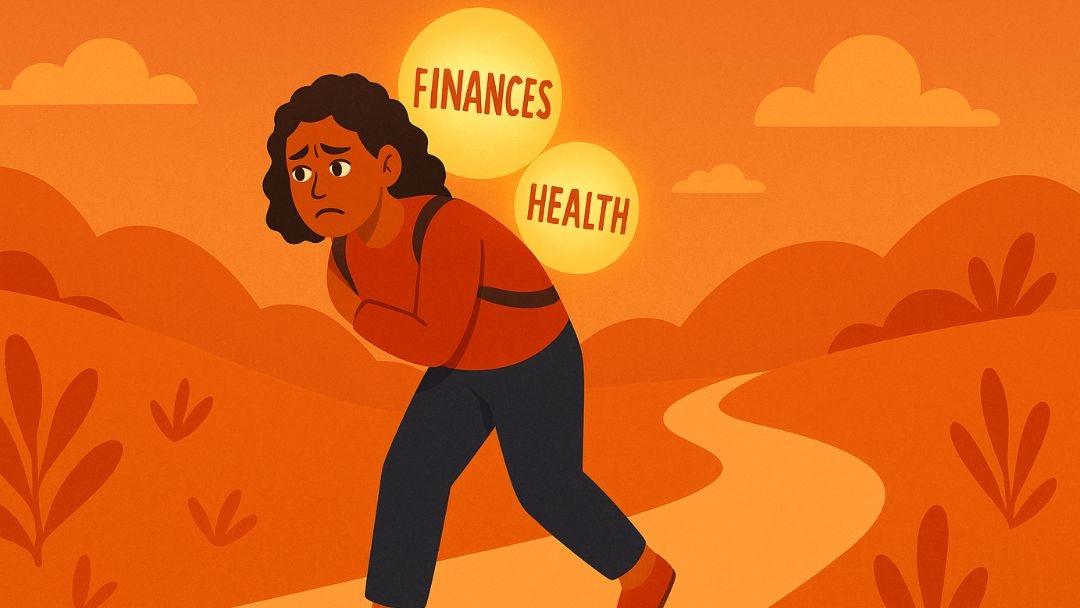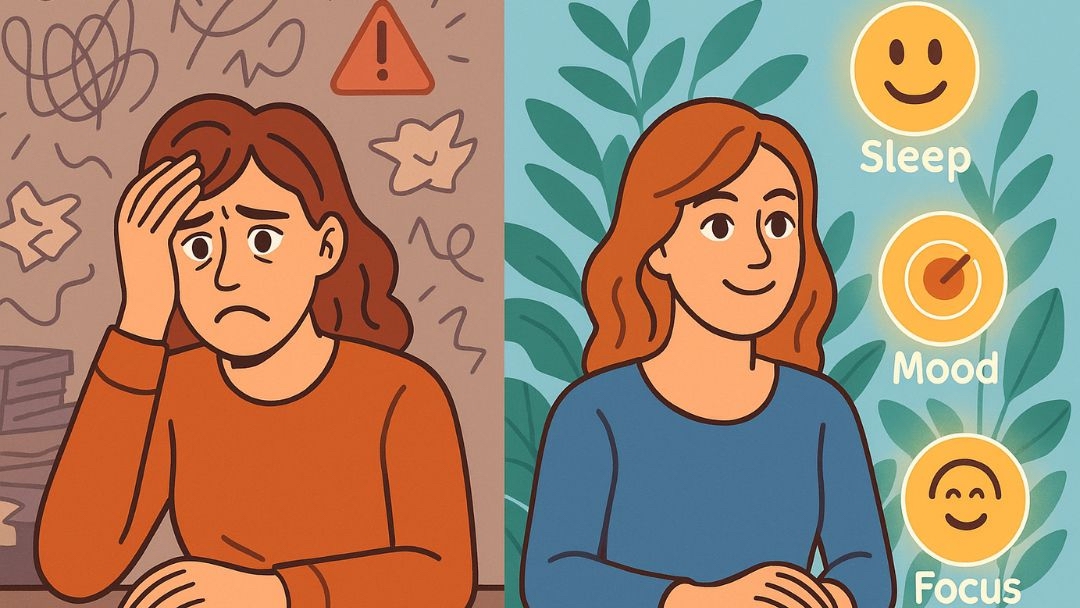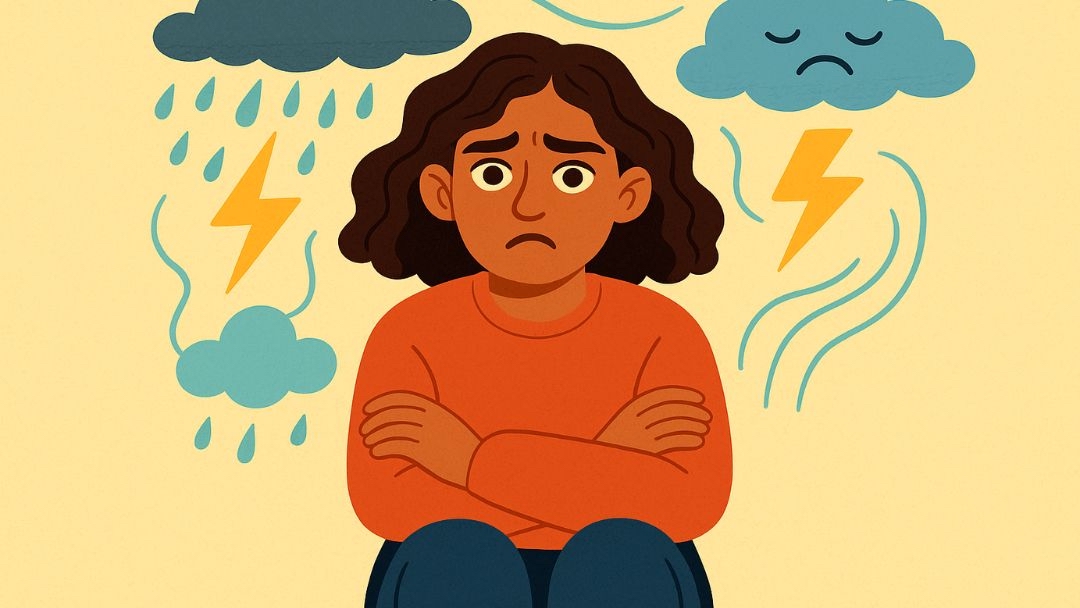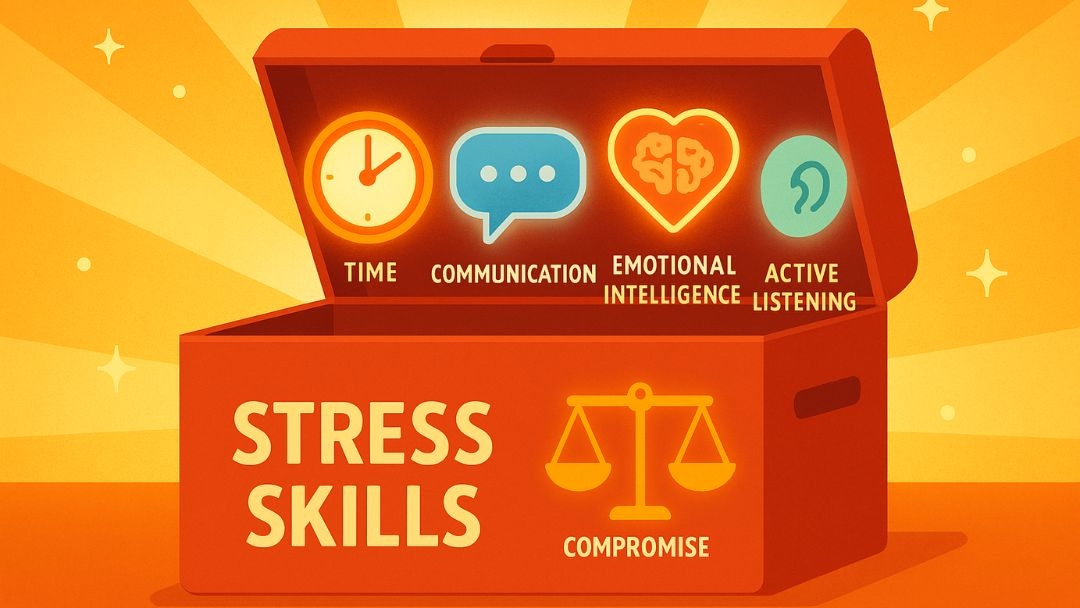10 Must-Have Stress Management Skills and Techniques to Reduce Stress
A stressful environment can contribute to several health conditions and also reduce productivity. But with the right soft skills, you can learn how to interact effectively and harmoniously with others, thus managing stress to benefit your personal and professional life.


Back
9 mins read
Stress is inevitable in today's challenging times, where the economy is plummeting, people are losing their jobs, and there's a lot of personal and work-related pressure. When used positively, stress can cause growth, action, and change, but chronic work stress leads to burnout, negativity, and less productivity.
On the bright side, you can manage stress by developing soft skills and healthy coping mechanisms to help you attain balance.
The ability to manage stress is vital, but not everyone is able to adapt. Soft skills allow employees to succeed in their workplace and other areas of life by helping them communicate, collaborate with others and resolve conflict more effectively.
This article will share some interpersonal skills and stress management techniques to help you combat stress and manage your emotions during stressful events and situations.
Related: Bring More Positivity, Joy, and Happiness to Your Life
Definition of Stress and Its Impact on Individuals

Stress is inherently complex and difficult to define because it's experienced on multiple psychological, physiological, and social levels. But essentially, it's when you're in a state of worry or emotional or mental strain caused by a problematic or stressful situation.
Stress comes from various places, including work, home, relationships, finances, societal pressures, or even from inside the body due to illness or inflammation. It can be chronic in response to a stressful situation you've had for a long time or acute in response to meeting a deadline.
Everyone experiences some degree of stress. In fact, most stresses are positive ones which are good for character building, personal growth, coming up with solutions, evolving, etc. But in our modern world and workplaces, we experience ongoing chronic stress that wears us down.
There are many well-documented studies on stress reduction and the impact of stress on body function. Stress has been linked to depressive episodes and anxiety, insomnia and other sleep disorders, cardiovascular disease, weight gain and obesity, gastrointestinal problems, and a weakened immune system, to name a few.
Learn more about how excessive stress can make you physically sick here.
Long-Term Stress in the Workplace Hurts Us All

Work-related stress is an increasing reality, with over 50% of employees reporting being highly stressed. Depending on the duration and severity of the stress, it can significantly impact individual employee morale, energy levels, and productivity. It also decreases the ability to focus, reason, make rational decisions, and form positive workplace relationships, which are crucial for consistently producing high-quality work.
Workplace stress can also sip into one's personal life and affect work-life balance, further exacerbating stress levels. Left untreated, chronic workplace stress can lead to burnout syndrome and depression.
As highlighted in an article by Farleigh Dickinson University, workplace stress can impact the business as a whole in the following ways:
- High employee turnover
- More missed days
- Lower overall productivity
- Increased medical insurance, workers' compensation, and other stress-related expenses
With sites like Glassdoor.com, employees can anonymously review their former workplaces, thus spreading the word about stressful or toxic workplaces. This can make attracting top talent challenging, ultimately resulting in lost revenue.
5 Benefits of Stress Management Skills and Techniques

Stress management removes the built-up stress hormones and gets your body working properly again. These skills are intended to help you know your stressors and deal more effectively with stress to minimize its effects.
Keep in mind that we are all made differently. As such, it's essential to find what stress management and relaxation techniques will fit your personality and needs best and apply them.
Using soft skills to manage stress can provide many benefits, including:
1. Improved Health
As mentioned earlier, unmanaged, long-term, and excessive stress makes you prone to various physical and mental diseases. Research has even found that stressed-out individuals age faster than their stress-free counterparts. Identifying and treating stress at an early stage leads to a healthy and balanced life.
2. Improved Sleep
Stress can make it challenging to fall and stay asleep, thus preventing a good night's rest. This, in turn, causes anxiety, fatigue, irritability, and reduced concentration. Learning and applying stress management techniques to everyday life, particularly before bedtime, can help you sleep better.
3. Reduced Tension
Stress can cause your muscles to tense, leading to soreness and pain. Stressed people also tend to have a short fuse, thus making them more reactive. Based on this, stress management techniques can help to lower stress and reduce feelings of irritability, muscle tension, and headaches.
4. Enhanced Performance
Focusing on work or other activities can be challenging when you're stressed. Workplace stress can also lead to burnout, affecting performance and career growth. A 2020 study shows that managing stress can significantly improve focus, attention, and the ability to get things done.
5. Strengthened Relationships
When people are stressed, they bottle up their emotions, making it difficult for the people around them to know what they're going through or even provide support. Sometimes, they lash out at others and avoid socializing or working in teams, which can strain their work, family life, or personal relationships. Learning to manage stress can help encourage healthy relationships.
How to Recognize High Stress Levels

The first step to managing stress is being able to recognize it. Sometimes you know it immediately when your mind races, muscles tighten, heart rate and blood pressure increase, and it takes all the strength and energy to keep from screaming in frustration.
But other times, the signs are easy to miss, especially when dealing with chronic stress. In that case, here are some common physical symptoms of stress:
- Fatigue
- Headaches
- Dry mouth
- Hyperventilation
- Sweating
- Nervousness or shaking
- A clenched jaw or grinding teeth
- An upset stomach, diarrhea, constipation, or nausea
- Muscle aches, pains, tension
- Insomnia or other sleep issues
- Changes in appetite
Prolonged stress can also have severe effects like panic attacks, heart attacks, high blood pressure, menstrual irregularities, etc. It can further develop skin issues like eczema, hair loss, acne, and psoriasis.
Stress affects physical and mental health. Here are some of the ways someone can experience emotional turmoil from stress:
- Feeling moody and irritable
- Feeling overwhelmed
- Excessive worry
- Low self-esteem
- Avoiding social engagements
- Feeling anxious, nervous, or afraid
- Feeling burned out, like your body and mind keep saying no to anything, including engaging in hobbies
- Having depressive symptoms
As with all such symptoms, seeking medical care to confirm that they are caused by stress and not other health problems is essential. Once that is clear, you can take the necessary steps to manage the causes, not just stress symptoms.
Relaxation techniques are a common recommendation for stress relief. And they certainly work. But emerging research suggests that there are stress management techniques that will help you handle stressful situations better — actually reducing the negative impact of stressful events!
Effective Stress Management: 10 Skills to Reduce Stress

Like stress, it can be challenging to come up with a universal definition for soft skills. Unlike hard skills tied to a specific job, soft skills are general characteristics that help employees thrive in their professional and personal lives while avoiding burnout. These skills are also known as interpersonal skills or transferable skills.
Without further ado, here are the soft skills you need to help you cope better with stressful environments and improve your overall well-being.
1. Time Management
Many people get stressed when they feel like they're running out of time to complete a particular task. It's hard to stay calm and focused when you feel overwhelmed or falling behind; you may be tempted to do shoddy work. Some people end up cutting back on healthy things that would help minimize stress, like socializing, taking essential breaks, or getting enough sleep to have more time for work.
The good news is that simple time management techniques can make you feel more relaxed and focused and help you become optimally productive and not just active. As a result, meeting deadlines, managing expectations, and achieving goals will be easier. Good time management is a proven way to reduce stress!
Let's look at some practical tactics for better time management:
- Write a to-do list
- Set realistic goals
- Break your tasks, projects, and goals into manageable chunks
- Understand what's urgent and prioritize tasks
- Define your goals and the plans to reach them
- Proactively schedule tasks
- Create time to relax and socialize
- Don't over-commit
- Delegate effectively
Effective time management techniques will also guide you in handling interruptions, overcoming procrastination, and prioritizing new tasks. All this goes to help employees to manage work-related stress.
How good are your time management skills? Take this quick, free quiz to find out!
2. Conflict Resolution
Workplace conflict is common, whether between individuals, teams, or competing priorities, and it can be expressed through verbal insults, noncooperation, physical fights, anger, bullying, etc.
Conflict is one of the top causes of workplace stress. Having strategies to minimize it helps to create a harmonious workplace and contributes to more teamwork.
Some approaches to help you relieve stress related to dealing with conflict include:
- Being open-minded
- Using active listening to understand other people's perspectives
- Addressing an issue in a timely and effective manner to avoid further escalation
- Having an open discussion where everyone has a chance to speak
- Knowing when to ignore or engage in conflict
3. Effective Communication
Poor communication can cause stress in a business or work environment (and in personal relationships too). Whether you're giving or receiving instructions, poor communication can lead to mistakes, missed deadlines, unhappy clients/customers, incomplete or shoddy work, etc. All of these can contribute to workplace stress.
Effective communication is a critical interpersonal skill that can help relieve stress and improve relationships in the workplace. That's because the other person or group can understand the message, thus avoiding any misunderstandings or misinterpretations.
Here are some effective strategies to improve your communication skills:
- Communicate on time
- Express yourself clearly and gently
- Maintain eye contact
- Pay attention to non-verbal cues
- Don't interrupt
- Limit distractions
- Be present and attentive
- Consider your tone of voice and body language
It’s also important to be aware that different personalities communicate differently. Understanding this can go a long way in preventing stressful situations before they happen!
4. Active Listening
You must also listen to the other person as you communicate your needs. Active listening involves paying attention and showing interest in what the other person is saying, asking clarifying questions, and taking notes if needed. This soft skill can help you communicate more effectively and avoid misunderstandings.
Active listening also allows you to show empathy and build trust while helping you deal with difficult conversations like conflict resolution, negotiations, and giving or receiving feedback.
5. Assertiveness
Being more assertive is another essential interpersonal skill that can help you cope with workplace stress. This means expressing your feelings and needs respectfully and confidently without being passive or aggressive.
Assertiveness will help you express yourself effectively and stand up for yourself, set boundaries, and negotiate better while being respectful to others in the workplace. The alternative is to keep your feelings inside, which will only build anger and resentment and increase stress levels.
6. Compromise
Sometimes you have to compromise to avoid conflict and reach an agreement. When you expect others to change their behavior or actions, be willing to do the same for them. If both parties are willing to bend a little, you can find a happy middle ground, thus preventing unnecessary stress.
7. Emotional Intelligence
Emotional intelligence has five key elements: self-awareness, self-regulation, empathy, social skills, and motivation. Individuals with these skills can manage their emotions and understand the feelings of others around them.
When you're emotionally intelligent, you can empathize with others and approach them with more compassion and less confrontation. This creates a more friendly and engaging workplace with minimal stress.
8. Sociability
There's nothing better for your mental and physical health than engaging in positive social interactions. Spending time with friends and family is a natural way to calm your mind and lower your stress.
Employees spend a lot of time together, so they need to build social connections to get along. Strong social relationships make people happier and healthier, thus reducing their stress levels and improving work performance.
9. Gratitude and Positive Self-Talk
Gratitude is probably not the most common word in the workplace, but it's vital. Every career or workplace environment is flawed. Instead of focusing on the negative things that give you stress, you should start appreciating what you have, what you do, and what others do.
Positivity is all about looking on the bright side, finding opportunities, and celebrating even the small successes in your work life. Gratitude and a positive attitude can help boost your mood, resilience, and motivation, all of which help with mental and physical stress too.
10. Mindfulness
Mindfulness is a crucial soft skill you should include in your everyday life if you want to effectively manage stress. Mindful people are more emotionally intelligent, forthright, adaptable, resilient, and focused during difficult situations. A quick and easy way to be mindful is to practice deep breathing while focusing on breathing in and out.
You can also try body scanning, journaling, guided meditation, mindfulness meditation, walking meditation, or mindful eating. In a workplace environment, you can practice mindfulness by improving your listening skills, focusing on what you can control and letting go of what you can't, working on one task at a time, and so on.
Leading a Stress-Free Life

Stress is a real issue that impacts an individual's personal and professional life. The good news is that there are several tips to manage stress, starting with the soft skills mentioned above. Healthy habits like exercising, eating right, and grounding techniques are also proven strategies to reduce stress.
Even something so simple as taking a moment to do some deep breathing goes a long way in reducing your stress level.
However, if you're struggling to cope and stress is impacting your well-being and mental health, there are many ways to get professional help. You can always visit your therapist for some talk therapy or to get anxiety or depression medication.
If you're experiencing extreme stress with severe depressive symptoms like having suicidal thoughts, get immediate help by contacting the US Suicide & Crisis Lifeline.
You can find an international helpline at International Association for Suicide Prevention.


Return to Blog




